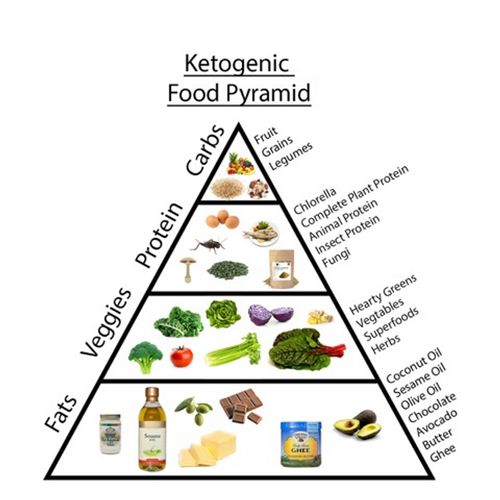The ketogenic diet is of primeval origin, creatively designed by our own DNA blueprint as a built in mechanism for surviving during periods of starvation. It is also the body’s natural response to carbohydrate restriction which is often referred to as a “fasting mimicking” diet or ketogenic diet.Doctors began prescribing the ketogenic diet over 40 years ago as a means to treat seizures before pharmaceuticals were available. Well before that, early Christians found ketosis treated “devil possession” (seizures) effectively after imprisonment and starvation. So, it’s really not a new idea at all. We are only just now beginning to understand the health benefits of a ketogenic diet from a medical perspective. But it’s likely been around as long as humans have.
Ketosis is a normal metabolic process that occurs when the body utilizes fat for energy in the absence or restriction of carbohydrates. All dietary carbohydrates turn to glucose in the body and glucose as a fuel source takes priority over fat. The byproduct of fat metabolism is the production of ketone bodies which are water-soluble molecules produced by the liver for energy. Nutritional ketosis is a natural shift in the metabolism that occurs while burning primarily fat for energy.
Our survival as a species once depended upon our metabolic flexibility during times when food was not available. The very nature of a hunting and gathering society meant adapting to the cyclic seasons including times of feasting -- and times of famine. When food was ripe and plentiful in the springtime, excess energy was stored as body fat. When food was scarce in the winter, the stored body fat was burned for energy. None of us would be here today without this built-in metabolic keto-adaptation.
The ketogenic diet is likely the longest standing diet in human history as it encompasses that of traditional hunter-gatherer cultures over the course of thousands (maybe millions) of years. This is precisely how we evolved with this unique genetic adaptation in the first place. During cycles of feast and famine, the body naturally shifts between using glucose for fuel (from carbohydrates); and fat for fuel when there is no glucose available.
By nature, humans are hardwired to switch back and forth between burning fat and glucose like a hybrid car switching between gasoline and battery power. The human body actually prefers this fluctuating fuel source. It was designed as a way to thrive in an ever-changing environment. Unfortunately, we rarely honor this ancient relic of the past, depriving our physiology of this important and necessary operating mode which “turns on” the genetic pathways to healing and detoxification.
For almost 100 year doctors have been aware that healthy cells require less glucose than unhealthy cells. In the early 1930’s, Dr. Otto Heinrich Warburg won the Nobel Prize for his revolutionary discovery of how cancer cells metabolize energy differently by using primarily the fermentation of sugars rather than oxygen like healthy cells. Since then, science has been aware that cancer growth is driven by the metabolism -- rather than mutated DNA. This collaborates with many emerging new sciences including epigenetics, methylgenetic nutrition, and quantum physics, which all point to the unseen yet primary influencers of cellular behavior.
[...] the prime cause of cancer is the replacement of the respiration of oxygen in normal body cells by a fermentation of sugar.”
~ Dr. Otto Warburg
In other words, it's the environment surrounding a cell that triggers it’s behavior, meaning the DNA is not the driver as once accepted. This concept challenges one of the most entrenched beliefs in our medical history, suggesting that the nucleus may not be the "brain" of the cell after all. Rather, it is the mitochondria (which surrounds the nucleus) that determine the outcome of cellular behavior. The mitochondria are the energy production centers inside the cells. When metabolic function is restored with a ketogenic diet, so is the health of the mitochondria which manufacture energy in the body.
I have come to see that we are losing the war against cancer because scientists are chasing a flawed paradigm: most adult cancers are not a disease of damaged DNA, but rather one of defective metabolism.
~ Dr. Mercola, Fat For Fuel, A Revolutionary Diet to Combat Cancer, Boost Brain Power and Increase Your Energy
Because Warburg’s idea could not be capitalized on, his theory was cast aside in the relentless pursuit of profits where it remained until recently. The search for pharmaceutical "treatments" has held the majority of cancer research in the myopic world of genetics. This is a bit like looking for the cause of a car accident under the hood of the car. If you look in the wrong place, you will never find what you are looking for, yet this is what pharmaceutical companies continue to throw money at. For decades the pink ribbon “Find A Cure” campaign and countless other organizations have been pouring money into cancer research, primarily focused pharmaceutical “treatments” for genetic mutations while refusing to look at what triggers the expression of the genetic mutations in the first place.
Nutritional ketosis impacts multiple tumor-promoting pathways by limiting glucose availability to the tumor, suppressing insulin growth factor signaling.
~ Travis Christofferson, Tripping Over The Truth: How The Metabolic Theory of Cancer Is Overturning One Of Medicine's Most Entrenched Paradigms
Neurologist, Dr. Perlmutter, in his Book, Grain Brain, speaks briefly about ketosis as a way to reverse neurodegenerative diseases. In Amy Berger’s book the Alzheimer’s Antidote: Using a Low-Carb, High Fat Diet To Fight Alzheimer’s Disease, Memory Loss and Cognitive Decline, she also discovered vast amounts of existing medical research pointing to the connection between high blood sugar levels and degenerative brain disorders like Alzheimer’s. In fact, doctors are now calling Alzheimer’s disease Type 3 Diabetes.
Dr. Perlmutter, in his forward of Amy’s book states that, “the foods we consume actually interact with our DNA, changing the expression of our genes moment by moment, for better or worse. In this sense, food is information, and the instructions our food choices provided to our DNA regulate processes like inflammation, detoxification, and the production of antioxidants, all of which are pivotal for the health or decay of the brain.”
Contrary to what you might think, the inflammatory process that's involved in the degeneration of your arthritic knee or your coronary arteries is the very same one that leads to the deterioration of the human brain.
~ Dr Perlmutter, Grain Brain Cookbook
Thanks to the growing mass of scientific research on this topic, we know many of the inflammatory instigators and there is very little argument that the main player is sugar and carbohydrates which end up as glucose in the body. Of the vast assortment of diets out there, there isn’t one that doesn’t recommend cutting back on sugar. The good news is, you can influence your body's ability to heal itself by changing the internal environment of your cells through choosing a different diet and lifestyle. We can effect change in our genetic expression by changing our perceptions, beliefs and habits.
The ketogenic diet quite possibly holds the key to our survival as a species moving forward while we struggle to transcend the most deadly diseases of our times, many of which are arguably preventable. The results from implementing a well thought out ketogenic diet can be quite effective because it targets the root cause of many chronic diseases by reaching underlying issues such as inflammation, metabolic syndrome, leaky gut and environmental toxicity. These are essential areas to focus on when aiming to achieve optimal health.
- Inflammation
- Metabolic function
- Digestive health
- Detoxification
Mounting research suggests nutritional ketosis is the answer to a long list of health problems, starting with obesity. In fact, emerging scientific evidence suggests a high-fat, low-net carb and low- to moderate-protein diet (in other words, a diet that keeps you in nutritional ketosis) is ideal for most people. In fact, endurance athletes are turning away from conventional high-carb strategies and adopting this way of eating because it boosts physical stamina and endurance. Beyond insulin resistance and type 2 diabetes, there are a number of applications for nutritional ketosis, including as a treatment for seizures, especially in kids who are unresponsive to drugs, and in neurological conditions such as Alzheimer's and Parkinson's. Cancer is another area where ketogenic diets show great promise.
~Dr. Mercola, Blog
I hope you enjoyed this article. Please leave a comment.
Namaste,
Mary Beauchamp, RN
















